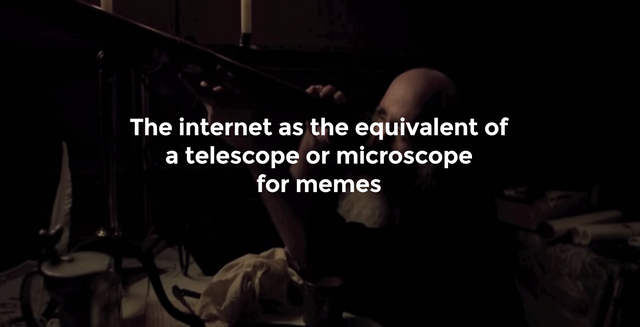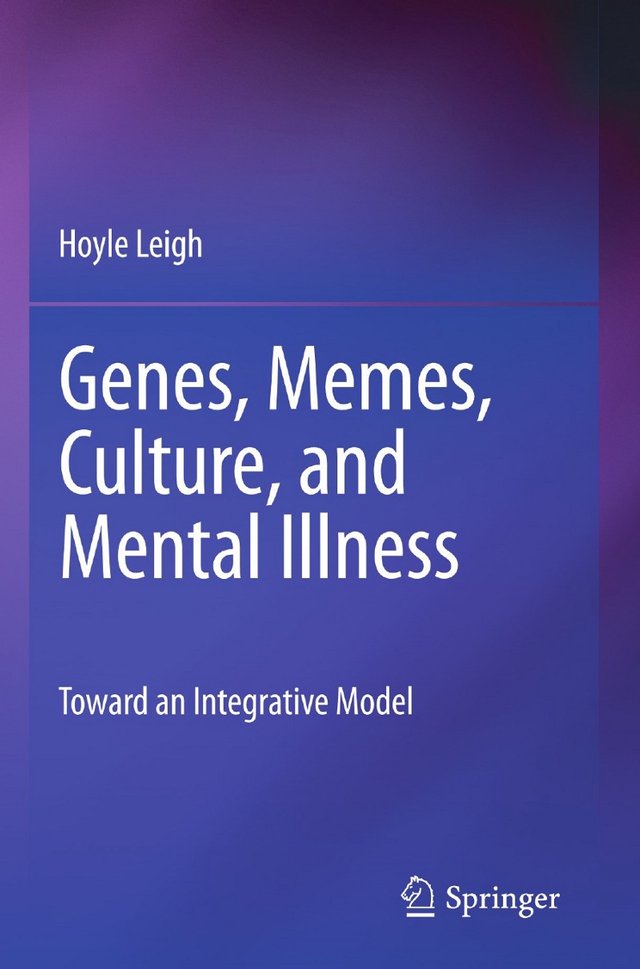
We are equipped with a brain that is particularly good at doing some functions on top of which we can build behaviors that improve our survival. That does not mean such functions are good for interpreting the world equally good on every domain. It is very possible that there are very simple natural laws we have not yet discovered just because our brains never evolved the ability to recognize some given patterns because doing so was not useful for our survival.
Before Pasteur’s discovery of bacteria and the evolution of the microscope, micro-organisms were beyond our comprehension. Before the telescope, that the earth revolved around the sun was also beyond our sight. We are equipped with a given hardware. We can only grasp some concepts through abstraction, while others are pretty intuitive.
Hoyle Leigh, MD and psychiatrist, who co-created the Yale Behavioral Medicine Clinic with Gary Schwartz in the 70s, wrote the seminal work Genes, Memes, Culture and Mental Illness: Towards an Integrative Model in 2010.
The Journal of Clinical Psychiatry chose to feature it in 2011, and wrote about it:
The interface of biology, evolution, and culture is exciting. Dr Leigh’s book is a must-read for those who are fascinated by novel models in mental health.In 1976, Richard Dawkins coined the term meme to denote bits of information that replicate themselves. These bits of information include the “percepts” created by the interaction of the brain and outside sources of information such as books and digital materials. The author makes a case for understanding mental illness in the context of memes going awry.
Technology extends our hardware. The microscope, the telescope, the internet. Our ‘extended phenotype’ if you will. It too extends our mental hardware. Without certain technology augmentations, it’s not that our brain cannot perform some tasks; it’s that we cannot even conceive them.
Look at how the internet extends our understanding of networks, how “networked society” became a meme a few years ago, how the millennial generation are fluent in followers and use social media as an extension of themselves.
The telescope allowed a new generation of scientists to expand their perception of the world, so too with the microscope, and I would argue that what led Hoyle Leigh to go from co-founding Yale Behavioral Medicine Clinic in the 70s, to then 40 years later expand his models with memetics, is that the internet acts as an extender of our perception. What changed in our environment during the time that passed from the 70s to the 10s is that the internet came into being.
Chris Anderson, curator of TED Talks, explains how the plummeting price of bandwidth about a decade ago opened opportunities for new innovation to grow. Suddenly it was possible for TED to transmit its talks via the web at virtually no cost. This was just one example of Moore’s Law in action. Similar breakthroughs have consistently changed the face of communications with low-cost, high-bandwidth internet opening doors for Facebook and Google, among others. (2)The internet does for memes what the microscope did for bacteria. That is why The Journal of Clinical Psychiatry chose to feature Hoyle Leigh’s work then 5 years ago (1) — the bandwidth of the internet had a few years earlier become sufficient enough to reveal that ideas literally served as the DNA of culture. (2)
The internet is a meme telescope.
Jason Silva has done more than most people to popularize the concept of memes, and his way of communicating has made him one of the most sought after public speakers in the world of tech. In the video below, he makes a case for how we must embrace technology and networked intelligence, which begins with an understanding of how memes spread and how ideas have sex.



Great post, I absolutely love Jason Silva's video's.
Downvoting a post can decrease pending rewards and make it less visible. Common reasons:
Submit